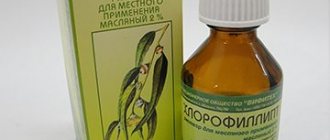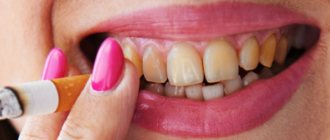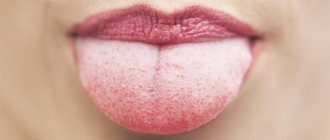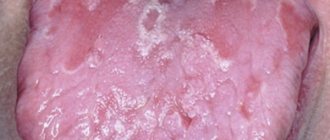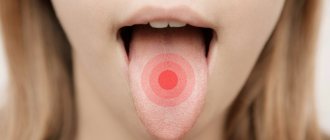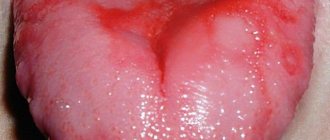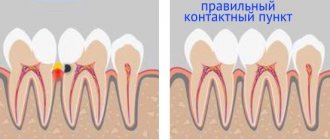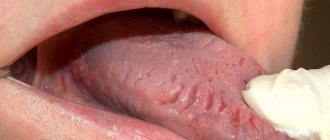Fresh or cooked pineapple contains many trace elements and vitamins, its consumption has a positive effect on health. The fruit can be eaten raw, canned, used for preparing meat, confectionery, and juices. But sometimes after fresh pineapple, especially eaten in large quantities, the tongue and lips sting. Let's figure out why it stings in the mouth.
Why a healthy fruit becomes dangerous
Pineapple contains a large amount of fruit acids, which, when they get on the oral mucosa, can cause discomfort.
You can especially often encounter this problem if you eat fruits that have not reached the required level of ripeness. Pineapple contains a large amount of the enzyme bromelain, the action of which is aimed at dissolving proteins and accelerating blood flow, so if you eat a lot of fruit, there is a possibility of a burn on the oral mucosa.
The human body is made of protein, so pineapple and pineapple juice try to “digest” it. This is the main reason why pineapple stings the tongue, causing ulcers to form on the lips of those who overdo it with eating such an interesting fruit. This is where the expression “pineapple eats us when we eat it” comes from, because the fruit really eats away the mucous membrane, but this is not dangerous for the body.
Composition of pineapple
Pineapple is a perennial herbaceous plant that grows in all tropical countries of the world. The culture has many varieties. The chemical composition of pineapple includes various beneficial compounds, trace elements and vitamins. The fruit, which is consumed as a fruit, is considered a valuable food product and has the following properties:
- 86% consists of water.
- Contains many simple sugars, mainly sucrose.
- Includes organic acids, mainly citric and ascorbic. And this is a possible reason why your tongue stings after eating pineapple.
- Vitamins A, B1, B2, B6, PP are present.
- Minerals are represented by potassium, calcium, magnesium, iron, copper, zinc, manganese, iodine.
- The composition also contains bromelain, a complex of enzymes that break down proteins. This active substance gives its name to a whole family of plants - Bromeliads. Pineapple also belongs to this family of plants.
The large amount of water in the fruit makes it low-calorie and useful for diets. The natural sugars contained in the fruit are healthier than beet or cane sugar consumed daily. The presence of vitamin C makes the fruit useful for maintaining immunity. In addition, ascorbic acid is an antioxidant, and according to recent research, it slows down the development of cancer.
Other vitamins and microelements are useful both for the whole body and for the cardiovascular system in particular. And potassium salts help remove excess water from the body, which in turn helps to reduce weight.
Bromelain promotes the digestion and absorption of protein foods, has an anti-inflammatory effect, counteracts thrombosis and high blood clotting. Because of the bromelain, pineapple and natural pineapple juice are excellent ingredients for marinating meat. After such a marinade, even the toughest meat becomes soft.
We recommend that you read the History of Corn
Due to these properties, pineapple is often used to remove calluses. And cosmetologists use the fruit to make masks for the face and décolleté. The effect of such masks is as follows:
- moisturize and tone;
- nourish the upper and middle layers of the skin with vitamins and nutrients;
- exfoliate the surface layer of the epithelium;
- stimulate the growth of new cells;
- relieve inflammation and swelling;
- help in the fight against acne;
- smooth out wrinkles and refresh the skin.
The fruit is also used in other cosmetics.
How to get rid of burning sensation
Victims of pineapple want to understand what to do if their tongue burns after eating it. To reduce this unpleasant feeling, you need to follow a few simple rules:
- rinse your mouth with water;
- use a small amount of butter;
- drink some milk.
The mucous membrane of the mouth recovers very quickly, so if the burning sensation cannot be eliminated, it will disappear on its own after a few hours.
Treatment of botulism at JSC "Medicine" (clinic of academician Roitberg)
Treatment of the disease includes the following:
- gastric lavage using a special probe to remove remnants of contaminated food;
- intestinal dialysis using a special solution;
- administration of antitoxic serum in accordance with the type of bacteria detected (A, C or E);
- administration of drugs for infusion therapy to accelerate detoxification, restore water and electrolyte balance, and eliminate protein disturbances;
- introduction of antibacterial drugs;
- measures to eliminate hypoxia and its consequences;
- treatment of complications of botulism.
Depending on the severity of the poisoning and overall health, treatment for botulism takes from several days to a month. However, with timely medical intervention and compliance with clinical recommendations, botulism is sooner or later completely cured, and the activity of the nervous system is restored without the slightest consequences for its functioning.
How to prevent discomfort
You can prevent discomfort after consumption if you know exactly how to eat pineapple so that it doesn’t burn your tongue:
- Choose the right fruit . To avoid a burning sensation in the mouth, you need to pay great attention to the ripeness of the fruit. The color should be closer to brown; other shades will indicate the unripeness of the fruit. The pineapple should be firm, but not hard.
- How to properly cut a pineapple . Before eating, it is necessary to remove the top peel along with the eyes, since it is in the peel that the largest amount of substances that can cause discomfort are found. Peeled pineapple can be cut into cubes or slices.
- Do not use the pith . There is a lot of bromelain in the core of the fruit. When eating pineapple, it is not recommended to eat the core, as it can cause a burning sensation in the mouth.
For cases where the oral mucosa reacts sensitively to the fruit, you should opt for canned pineapples. They do not cause discomfort and are processed properly for further use.
What is botulism
The bacteria Clostridium botulinum is ubiquitous in the soil, however, due to the high demands of microorganisms on conditions for reproduction, the disease rarely occurs in humans. For example, in Moscow, about 15-20 cases of botulism are registered annually, and in Russia as a whole - no more than 200 cases per year.
For rapid sustainable growth of the population of clostridia, which is the causative agent of botulism, the absence of oxygen and a favorable temperature within 30-35 degrees Celsius are necessary. Most often, such an environment is created during home canning in a hermetically sealed jar, salting and smoking. The bacterium multiplies rapidly in the canned product, releasing a toxin abundantly. The higher the number of bacteria in a product, the more botulinum toxin it contains and, accordingly, the higher the risk of poisoning. Bacteria can also multiply in the human intestine; in this case, the disease develops more slowly.
The botulism bacillus Clostridium botulinum exists in two forms - vegetative - capable of reproduction, and spore - extremely resistant to adverse external factors. The vegetative form of the bacterium can withstand contact with sodium chloride solution, acidic environment and spices, but cannot tolerate the presence of oxygen. It can remain viable for several years, but will not withstand 15 minutes of boiling. The spore form of botulism is even more stable: it persists for several decades, can withstand up to 6 hours in boiling water, and can withstand freezing, drying, and exposure to 18% saline solution. The death of clostridia spores occurs after half an hour of autoclaving at a temperature of at least 120 degrees.
Botulism toxin has a fairly high stability: in nature it remains active for up to 118 hours, a high concentration of table salt (18%) does not have an inactivating effect on it. At the same time, the toxin is completely destroyed within 10 minutes when heated to 100 ° C and is inactivated by alkaline solutions (pH higher) and alcoholic beverages.
At the same time, the toxin is completely destroyed within 10 minutes when heated to 100 ° C and is inactivated by alkaline solutions (pH higher) and alcoholic beverages.
Are you experiencing symptoms of botulism?
Only a doctor can accurately diagnose the disease. Don't delay your consultation - call
Contraindications for eating
Eating the fruit is contraindicated for the following problems inside the mouth:
- the presence of cracks and scratches on the oral mucosa;
- carrying out a procedure to remove tartar;
- professional teeth cleaning;
- the presence of inflammatory processes in the oral cavity and pharynx;
- damage to tooth enamel;
- damage to teeth (cracks, holes).
Also, the fruit should not be used for food if there is mechanical damage to the mucous membrane.
Types of disease
Depending on the etiology, botulism can be:
- foodborne - this is the most common type of disease resulting from eating foods contaminated with Clostridium botulinum;
- wound – developing due to contact of the patient’s wound surface with a surface on which bacteria are present;
- children's - developing only in infants in the first six months of life due to parents' violation of hygienic recommendations for child care;
- respiratory - in this case, the pathogen enters the body through the respiratory system in the form of spores sprayed in large quantities into the air (for example, when using bacteriological weapons).
All of the listed varieties, except food ones, are extremely rare. Transmission of botulism from an infected person to a healthy person is impossible.
Not to be confused with allergies
Signs of burning are manifested by discomfort in the oral cavity, which gradually decreases. If there is a high level of sensitivity, a person may become allergic to pineapple. It manifests itself with the following symptoms:
- the tongue swells (becomes smooth) and loses sensitivity;
- lips become inflamed;
- small red spots or a small rash form near them;
- Gradually, the rash may spread to the cheeks and other parts of the face and body.
Signs of allergies most often do not disappear on their own, but increase and become more severe.
Restoring the sense of smell
If you have a long-term loss of smell, you should immediately go to the clinic for an appointment with an otolaryngologist. If you treat yourself, you can worsen the current condition.
Recovery can be:
- Surgical.
Such intervention may be required in advanced cases (for example, with a tumor or deviated septum). Then the surgeon performs the operation.
- Medicinal.
The doctor prescribes a list of necessary medications, from nasal rinses to antibiotics, antiviral and antifungal agents.
- Physiotherapeutic.
Treatment may require physical therapy. The doctor prescribes heating or inhalation, and in some cases laser treatment is performed.
- People's
No one has abolished traditional medicine, but in no case should you prescribe decoctions for yourself. The doctor may prescribe a decoction for rinsing the nose from chamomile and oak bark or nasal drops based on aloe juice.
- Complex.
Those. This is the application of all types from physical therapy to surgical.
Why do other products cause problems?
The reasons why your tongue hurts and stings, or your mouth burns from pineapple may coincide with unpleasant sensations from other foods. However, in some cases the factors are different.
Pinching occurs especially often from sour foods. Such products contain acid, which corrodes the surface of the mucous membrane, leading to unpleasant symptoms. Also, burning and pain occur in the presence of damage and inflammatory processes in the mucous membrane.
It stings in the mouth from eating and when stomatitis develops.
The answer to the question of why the tongue stings and hurts after eating is, in most cases, due to the composition of the products. You can often notice such sensations when eating citrus fruits or foods that contain a lot of acids. Products related to allergens can also cause itching and burning.
Diseases of the oral cavity and digestive tract can also cause discomfort after eating food.
Orange
After eating an orange, your lips burn because this fruit contains organic acids that do not have a very good effect on cells.
The skin has a protective or stratum corneum, but the lips do not.
Kiwi
Kiwi makes your tongue tingle because the fruit, again, contains a lot of fruit acids. In addition, there are the following reasons why discomfort may occur:
- individual sensitivity to kiwi;
- large amount of vitamin C.
An allergic reaction to kiwi may begin with a burning sensation on the tip of the tongue.
Figs
Figs sting or tingle your tongue because they contain acids that can negatively affect the condition of the oral mucosa. The main part of these acids is found in the skin of the fig, so it is necessary to remove the peel before eating. The following reasons that contribute to the formation of discomfort in the mouth should also be highlighted:
- unripe fruit;
- there are lesions on the oral mucosa that, when exposed to acids, create unpleasant symptoms;
- individual intolerance to the fetus.
Most often, pinching occurs from fresh figs, so you need to choose a dry fruit.
Melon
If your lips and tongue tingle after eating melon, this may be due to individual sensitivity and allergies. Initially, it manifests itself as a slight burning sensation in the mouth and throat, after which the symptoms intensify and develop into a more complex form. An allergic reaction may develop not to the melon itself, but to the nitrates with which some suppliers treat this berry.
Another source of possible burning is infection of the fetus with the fusarium fungus, which gives a bitter, tart taste, and may cause unpleasant sensations in the mouth. The risk of fungal infection increases if the melon is stored incorrectly and for a very long time.
Tomato
Factors why tomatoes sting the mucous membranes in the mouth and tongue:
- the body’s individual reaction to the acids present in tomatoes;
- the presence of damage on the covers of the tongue, they react to irritating substances.
Most often, discomfort in the mouth extends to the lips and the area around them.
Eggplant
Eggplants sting in the mouth because the vegetables contain salicylate (an ingredient in aspirin), which can negatively affect the well-being of people who have a negative tolerance for aspirin.
The largest amount of this component is in the peel of the vegetable, which is why many people may experience allergies when eating dishes made from unpeeled eggplant.
Watermelon
Unpleasant symptoms of burning in the tongue after eating watermelons can occur for the following reasons:
- the presence of a large amount of nitrates in the product;
- the product is not ripe;
- individual reaction of the body to watermelon.
Manifestations of discomfort during the period of eating watermelons, as a rule, quickly disappear on their own.
Walnuts
The appearance of a burning sensation from walnuts is explained by the following reasons:
- geographic language (inflammatory and dystrophic processes in the mucous membrane);
- the presence of mechanical damage to the tongue;
- development of allergy to the product.
Walnuts contain tannins, which can lead to an unpleasant burning sensation and itching.
Clinical researches
Clinical studies have proven the effectiveness, safety and tolerability of the products. The products are suitable for daily care of children's skin with mild to moderate forms of atopic dermatitis and during remission, accompanied by a decrease in the quality of life of patients.
Cream for sensitive skin reduces itching and irritation, relieves redness of the skin, moisturizes and gently cares for it.
Sources:
- Kamasheva G.R., Khakimova R.F. Valiullina S.A., Methods for assessing the severity of atopic dermatitis in young children, Dermatology journal, 2010
- Kovyazina N.A., Fedosimova N.A., Illek Ya. Yu. Diagnosis of atopic dermatitis in young children, Vyatka Medical Bulletin, 2007
- Smirnova G.I. Managing the course of the disease: atopic dermatitis in children, Russian pediatric journal, 2014
Questions and answers
What foods cause botulism most often?
Medical statistics show that the first place among the causes of botulism is occupied by home-canned food - pickled mushrooms and cucumbers, as well as home-smoked hams and dry-cured sausages. Less often, poisoning is caused by homemade pickles, smoked or dried fish, canned meat and fish. In rare cases, the source of infection becomes bee honey, potato salad with fried onions in a large amount of oil without subsequent heat treatment, and pickled bamboo shoots.
How can you become infected with botulism?
The source of botulism infection can be found in any products that have been in contact with contaminated soil or the intestinal contents of animals, birds, or fish that contain bacterial spores. Eating poorly washed food or home-canned foods prepared with insufficient sterilization conditions are the main sources of infection.
How to recognize botulism in a child?
Signs of botulism in children are indistinguishable from the symptoms of adults: abdominal pain, diarrhea, change in voice or crying pattern, in infants - inability to hold the head, etc. Since the disease develops very quickly, at the slightest trouble you should immediately consult a doctor. Timely assistance and compliance with clinical recommendations for botulism in children can avoid the worst consequences of poisoning.

